Press Reviews
August 2021
International Media Digest
GENOCIDE DENIAL BANNED IN BOSNIA, POLITICAL CRISIS DEEPENS
A law introducing a ban on genocide denial and the glorification of war criminals plunged Bosnia and Herzegovina into another political crisis, deepening existing divisions along ethnic lines between Bosnian Serbs and Bosnian Muslims.
A few days before his term expired, at the end of July, the outgoing High Representative in Bosnia and Herzegovina (OHR), Valentin Inzko, decided to introduce amendments to the Bosnian criminal law, punishing who publicly condones, denies or tries to justify the genocide in Srebrenica and other gross war crimes committed during the war in Bosnia. The offence will be punishable with up to five years in prison. The High Representative oversees the implementation of the 1995 Dayton Peace Agreement and uses the so-called ‘Bonn Powers’ to adopt binding decisions when the local political authorities, due to the local disagreements, are unable to act, as it was in the case of the negationism of the Srebrenica genocide. The ‘Bonn Powers’ were not exercised for a decade.
“Hate speech, the glorification of war criminals, and revisionism or outright denial of genocide and war crimes prevent societies from dealing with their collective past constitute renewed humiliation of the victims and their loved ones, while also perpetuating injustice and undermining interethnic relationships,” the OHR said, noting that “all this prevents the building of a peaceful and prosperous future for Bosnia and Herzegovina”. “The citizens of Bosnia and Herzegovina have waited many years for their elected representatives to legislate this very serious issue” but every effort in this sense was blocked and the situation is now getting out of hand”, Inzko recalled.
OHR’s decision was welcomed by victims and survivors of the war, by politicians in Sarajevo and by the international community. “Without acceptance, there is no forgiveness and I will not forgive until someone pleads for forgiveness,” said Kada Hotic, from the Mothers of Srebrenica, an association that is fighting also against genocide denial and for preserving the memory of the victims of the 1995 massacre.
On the other side, the decision provoked rage and controversy in Republika Srpska, the Serbian entity in Bosnia, but also in Serbia and Russia. The Serbian member of the tripartite Bosnian Presidency, Milorad Dodik, criticised the decision, stating that the law marks the entire Serbian people as “genocidal”. Dodik evoked once again the scenario of secession from the rest of Bosnia and Herzegovina as a kind of retaliation and threatened a blockade of central institutions through the boycott of their work by Serbian representatives. Moreover, he questioned the legitimacy of the Office of the High Representative, attacking both Inzko and the new High Representative, Christian Schmidt, who took over the function in August.
Serbian President Aleksandar Vucic sided with Dodik, stating that Bosnia “does not need imposed solutions,” while Russia said that the Bosnian Serb entity has the right to reject the ban on genocide denial.
BULGARIA’S INSTABILITY WORSENS, COUNTRY HEADING TOWARDS NEW ELECTION
Bulgaria could be heading to the third general elections this year, a scenario that could lead to instability in the country itself and could also have negative consequences on the European path of Northern Macedonia, with its accession negotiations blocked by a Bulgarian veto.
Bulgaria’s first general elections in April this year produced a very fragmented Parliament. Bulgarian former Prime Minister Boyko Borisov’s centre-right party GERB (Citizens for the European Development of Bulgaria) came first in the elections but did not win enough votes to build a solid majority in the Parliament and form a government. The new populist party “There is Such a Nation” (ITN) of Slavi Trifonov came second, while the Bulgarian Socialist Party (BSP) was third. None of the parties managed to form a majority and the second elections were called for July 11.
At this electoral round, ITN overtook GERB, becoming the largest party in the country. However, even the new vote didn’t alter the makeup of the Parliament. Talks were organised about a possible majority to be composed by the newcomers, “There is Such a Nation” (ITN) and “Stand Up! Thugs Out!”, another populist party, plus the Bulgarian Socialist Party (BSP), but Trifonov, the ITN’s leader, refused to offer enough guarantees to the other potential partners in the government. An attempt made also by the GERB party to form a majority failed, with Borisov’s party returning the mandate, making a third round of parliamentary elections in the country more likely.
The lack of a strong political government makes concerned analysts and public opinion in the EU member country in which the list of priority themes is long. Among the topics high on the agenda are the revised budget, the finalization of the National Recovery and Resilience Plan, and the development of a strategy to cope with a possible new wave of migration from Afghanistan to Europe along the Balkan Route.
The inability of any political party to form a new government in Bulgaria could also have an impact on the hope of Northern Macedonia and Albania to finally open accession negotiations with the European Union. Last year Bulgaria has exercised its veto power against Skopje accession due to complicating historical and language disputes and conditioned the start of negotiations to the resolution of bilateral disputes. The current veto has negative consequences also for Albania, as the path towards EU accession of the two Balkan countries is coupled. Despite comments of the Enlargement Commissioner, Oliver Varhelyi, about a possible decoupling of the EU path of Tirana and Skopje, at this stage, it seems that there is no intention of ‘decoupling’ North Macedonia and Albania in the accession process.
Both countries underwent painful reforms to speed up the accession process, with the Northern Macedonian one held up for two decades by a dispute with Greece over its name. New delays could further exacerbate the already growing disillusion about the EU enlargement process not only in Albania and Northern Macedonia but also in the rest of the Western Balkans. “We already did our best,” Nikola Dimitrov, North Macedonia’s Deputy Prime Minister for European affairs, said.
Further News and Views
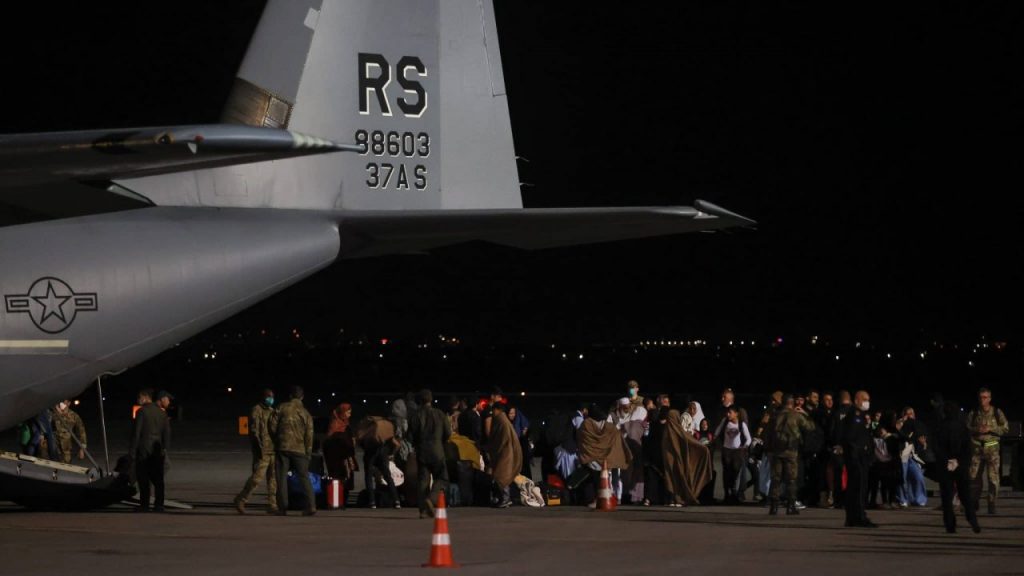
Albania, Kosovo, North Macedonia hosting Afghan refugees
Tirana, Pristina and Skopje will temporarily host several thousands of Afghans fleeing the Taliban, political authorities in the three Balkan capitals said. The countries will primarily host refugees who have worked for the Western alliance in Afghanistan and humanitarian organisations, media and human rights groups, as well as the members of their families. The Afghans will be hosted until they reach their final destination, the United States or other Western countries willing to provide them protection. Albania and North Macedonia, both NATO members, and Kosovo, which aspire to join the Alliance, were the first European countries to say they’ll provide temporary shelter for Afghans.
Balkan Insight, Politico
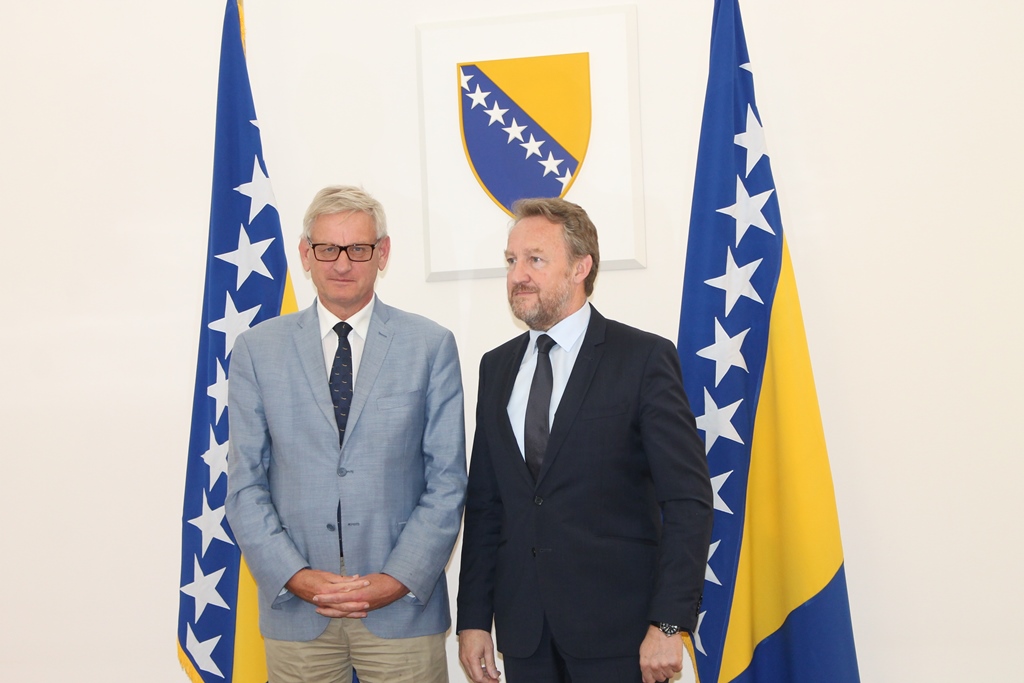
Without enlargement risks of conflicts in the region
With the EU integration process de facto stalled, “one cannot rule out a return of violent conflict” in the Western Balkans, former Sweden’s foreign minister and former Prime Minister Carl Bildt warned in an open-ed for the Project Syndicate. Bildt served as well as EU Special Envoy to the Former Yugoslavia, High Representative for Bosnia and Herzegovina, UN Special Envoy to the Balkans, and Co-Chairman of the Dayton Peace Conference. In his article, Bildt encouraged EU countries to speed up the accession process, cautioning that “the alternative for the Western Balkans is a slide backward into violence.”
Project Syndicate
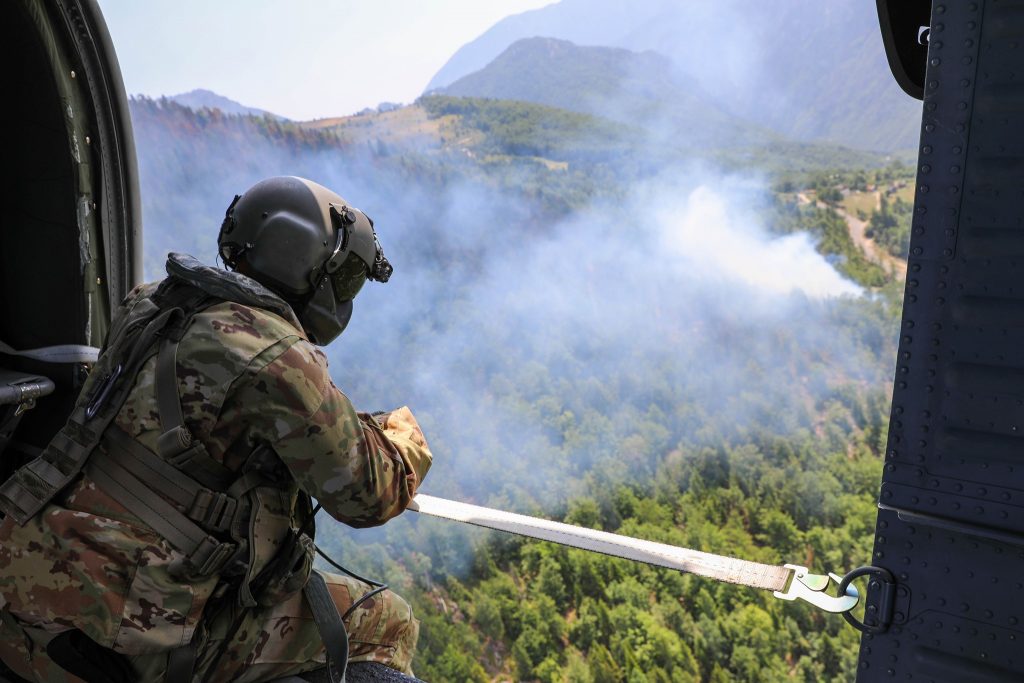
EU, NATO states in the Balkans receive assistance for massive wildfires
Massive wildfires rampaged across the Balkans and Turkey in August, causing severe damages and casualties in Albania and Kosovo and even threatening bigger cities and settlements. Police have arrested dozens of people suspected of settling light to forests deliberately. However, climate change could be a key driver of another extreme fire season in the region, scientists warned. NATO Allies helped Albania, Greece, North Macedonia and Turkey in dealing with devastating wildfires by deploying ground and air assets. Many EU member countries did the same, and several Balkan states have offered each other assistance during the emergency.
NATO, Emerging Europe, Deutsche Welle
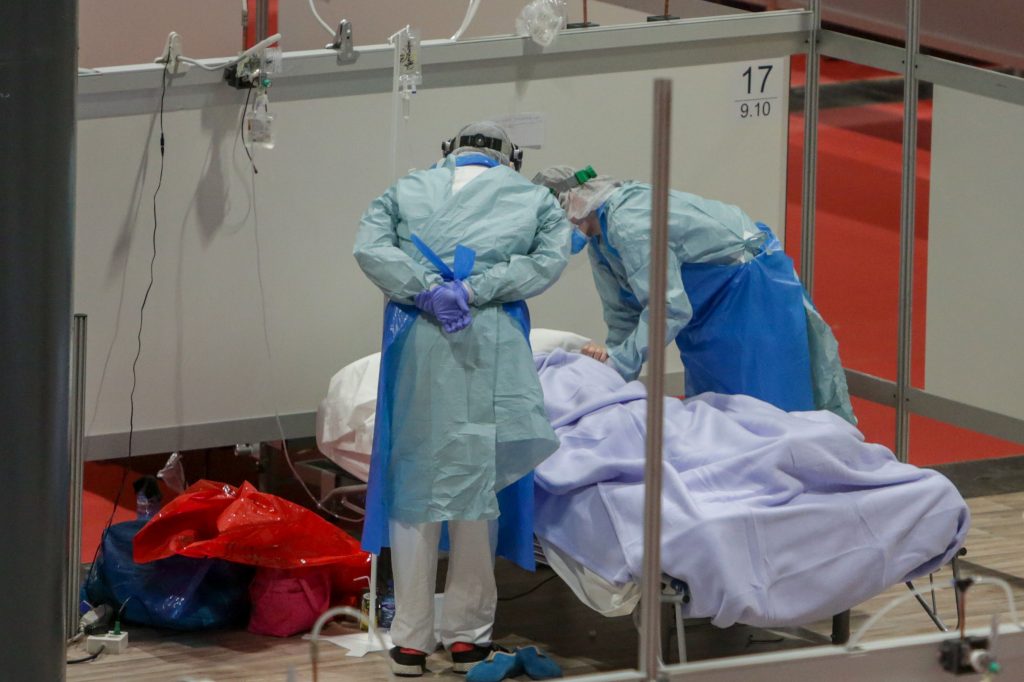
Romania population drops due to pandemic, new COVID wave
Due to the COVID pandemic, Romania has recorded a decrease in population of 0.7% in 2020, the biggest drop in the entire European Union, according to official Eurostat data. The largest decrease in population in overall number of people, was registered in Italy (-384.000, or -0.6% of the population), followed by Romania (-143.000, -0.7%) and Poland (-118.000, -0,3%). The region, mainly spared during the first COVID wave, was badly hit at the end of the summer last year and again in winter, with official death numbers possibly significantly lower than the real one in several countries in the region. The Balkans are currently experiencing a spike in new infections, amidst the low number of vaccinated persons.
EUReporter, Balkan Insight
Monthly Analysis
HALF BALKANS PUSH FOR “MINI-SCHENGEN”,
OTHER HALF BOYCOTTS IT
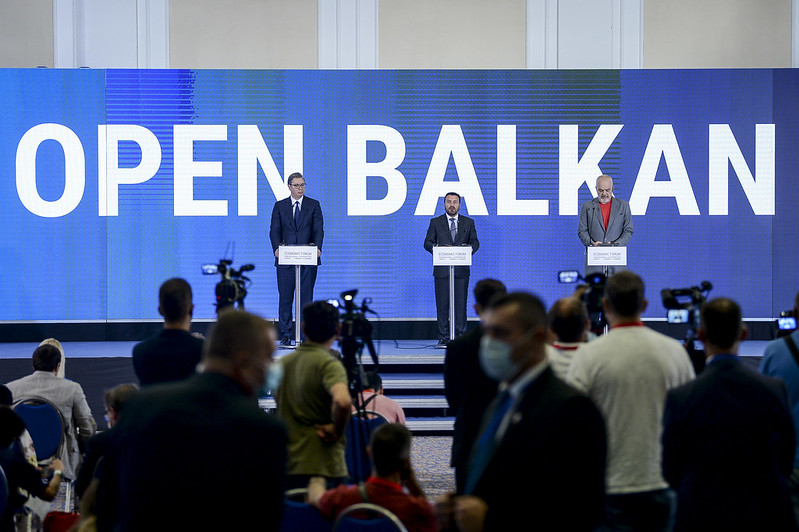
Amidst delays in the EU accession process and enlargement fatigue in Europe, three Western Balkans countries – Serbia, Albania and North Macedonia – are working to create a kind of “Mini-Schengen” area in the Balkans in order to introduce in the region, before becoming full members of the Union, fundamental freedoms such as free movement of persons, goods, services and capitals. However, three other Balkan countries, namely Bosnia and Herzegovina, Kosovo and Montenegro, albeit invited to join, seem to remain sceptical about the initiative, a possible seed of failure of the entire initiative.
The political leaders of the three countries that originally launched the initiative already back in October 2019, calling it “Mini-Schengen” or “Little Schengen” after the EU’s border-free zone, met again in Skopje at the end of July. Albanian Prime Minister Edi Rama, Serbian President Aleksandar Vucic and North Macedonia’s Prime Minister Zoran Zaev decided to rename the initiative in “Open Balkan” and committed to eliminate all border obstacles for their citizens and businesses by 2023, creating a free movement area between their countries. The “Open Balkan” free economic zone would have about 12 million citizens in total.
Rama, Vucic and Zaev took concrete steps forward, signalizing that they sincerely want to implement the project in the next two years. Among the most significant documents signed in Skopje was a memorandum on easing trade, scrapping paperwork and speeding up the transport of goods between borders. The three leaders discussed also opening special fast tracks at border crossings for citizens of Serbia, Albania and Northern Macedonia. They will also work on the exchange of data between customs offices in order to facilitate imports, exports and transit of goods. Furthermore, they agreed to de facto unify the Serbian, Albanian and North Macedonia labour markets. The step will be implemented by simplifying procedures for issuing work permits, and by mutually accepting diplomas and job qualifications. In this way, the countries involved also hope to attract more foreign investments. The three leaders signed also an agreement that fosters regional cooperation and mutual aid during natural catastrophes.
“Our political will, that of President Vucic, Prime Minister Rama and mine, is an expression of our maximum commitment to provide all conditions that depend on the governments of our three countries for effective regional cooperation,” said North Macedonia PM Zoran Zaev. “We do not have the luxury of wasting time, because we have lost decades and centuries,” noted Albanian PM Edi Rama, stressing that the region cannot remain a prisoner of the past. From 2023 “there will be borders, but there will be no stopping for our citizens (…) It will be a historic moment,” Serbian President Aleksandar Vucic said while assuring that “this initiative” will change “everything in the region.”
The three leaders reiterated their disappointment over the EU’s failure to start membership talks with Albania and North Macedonia, but they claimed that the Open Balkan initiative will not constitute an alternative to EU accession, but only a way to make the Balkans more prosperous and connected while waiting to join the Union. The western Balkan countries “cannot wait for all of the EU’s internal problems to be solved” for the region to move forward, Zaev remarked.
The initiative has been positively hailed by the European Union and the United States, with Germany welcoming it as an important step towards a deeper “regional cooperation,” noting at the same time that it should be inclusive to all six countries of the Western Balkans.
Zaev, Vucic and Rama called on other countries in the region to join the ‘Open Balkan’ initiative, stressing that it represents an opportunity also for their economies, creating a more modern and economically unified Western Balkans, more attractive to investors.
However, the project did not still receive the political support of all Western Balkan countries. The reluctance of Kosovo, Montenegro, and Bosnia and Herzegovina to join the Open Balkans initiative persists, with Pristina being the most vocal opponent of the project. Kosovo’s PM Albin Kurti dismissed the initiative, defining it as “visionless.” The Open Balkan project “creates the idea (…) that there is another alternative apart from the region’s joint path to the EU. Conveying this message is as dangerous as it delays the European integration,” Kosovo’s Foreign Ministry added.
The Insight Angle
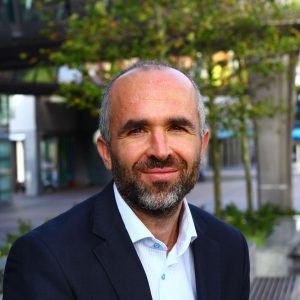
SRDJAN CVIJIĆ
Senior Policy Analyst
Senior Policy Analyst, Open Society European Policy Institute (Brussels)
Serbia, Albania and North Macedonia are pushing forward on the so-called ‘Open Balkan’ initiative. How do you assess the project? Is it beneficial to the region?
Yes, it is. As a follow up to a symbolic move of abolishing the roaming tariffs between the countries of the region, easing trade, establishing a common market for labour, goods and services, and free travel, could certainly render the process of European integrations easier.
Kosovo, Bosnia and Herzegovina and Montenegro seem not to be interested to join the ‘Mini-Schengen’ in the Western Balkans? Why? Is their refusal to join an implicit failure of the initiative?
They are reticent, but their position seems to be slowly shifting. The main obstacles for the other three countries joining the Open Balkan initiative are political. I think Kosovo, BiH and Montenegro would join if, for example, the message from Belgrade would be consistent. Whenever President Vucic’s ministers engage in aggressive nationalist rhetoric aimed against other countries in the region the benefits of the initiative for cooperation within the Open Balkan and other regional cooperation projects is almost immediately cancelled out. The latest of these examples has been the Serbian Minister of Interior ominous call to unify all the lands of the Western Balkans populated by Serbs in one political space. Whenever a positive initiative such as the Open Balkan initiative appears in international media, parallel negative rhetoric occupies the public space in Serbia, and it has the purpose of comforting the nationalistic base of President Vucic’s party and the ruling coalition. We also had an example of the dirty smear campaign against the Prime Minister and the new government of Montenegro run in the last month by the Serbian pro-regime media. President Vucic cannot pretend that such statements or campaigns are made without his explicit or tacit approval, and in any case as a man who holds all the power in Serbia, he can certainly sanction those who make them, but he doesn’t. Regional cooperation is not a la carte, if it is not complete and sincere, if this Dr Jekyll and Mr Hyde politics continues, it will fail. I think this inconsistency is making it more difficult for Kosovo, BiH and Montenegro to adhere to the Open Balkan initiative, and of course, they also have plenty of nationalists within their ranks that exploit such situations.
Apart from the political obstacles, we have to talk about the administrative capacity of the countries to implement the agreement. This is also not a given thing. Take as a symbolic example the integrated border crossing already existing between Serbia and North Macedonia and ask about it anyone who had to wait for hours to cross it on their way to the Greek coast this summer.
Is the ‘Open Balkan’ initiative an alternative to EU integration, a signal of the failure of the Union to integrate the region? If yes, what do you think the EU could do to accelerate the enlargement?
Absolutely not. The Open Balkan initiative should not be understood as some sort of a substitute for the European membership of all six countries of the region. Without the EU membership perspective, the Open Balkan initiative would resemble a prisoners round, a group of prisoners walking in a circle around a claustrophobic prison yard. The Open Balkan is just a step towards the ultimate goal, full EU membership of all six Western Balkans countries.
Also, and I wish to reiterate this, the Open Balkan cannot solve the problems such as the deteriorating rule of law and democracy in some countries of the region.
Do you think the Slovenian presidency will manage to push enough to open accession negotiations with Skopje and Tirana? If not, do you have any hope regarding the French presidency, taking also into account the upcoming presidential elections in France?
I am sceptical, but hope dies last. I am not sceptical because of Slovenia but because of the inward looking, nationalist political elite in Bulgaria. Also, the French president wants to see this issue solved before the end of the Slovenian presidency, i.e., before the last months of the French presidential elections start. If it doesn’t happen by then I am afraid we would have to wait for the Czech presidency starting in July 2022, or in the best-case scenario, the European Council meeting at the end of June 2022, after the end of the French legislative elections.
We are currently witnessing a new crisis in Afghanistan. Do you think there is a risk of a new migration wave in the Balkans? If yes, what kind of risks do you foresee?
The migration crisis is political, not real, and luckily in the Western Balkans (as we saw in the previous migration crisis) it is not an important topic of the internal politics of these countries. Although the numbers of people wishing to leave Afghanistan are raising on a day-to-day basis, I don’t think it will lead to another situation as we had in 2015-2016. The number of people arriving in Albania, Kosovo and North Macedonia is limited and they are going to stay in the region temporarily.

Stefano Giantin
Journalist based in the Balkans since 2005, he covers Central- and Eastern Europe for a wide range of media outlets, including the Italian national news agency ANSA, and the dailies La Stampa and Il Piccolo.

